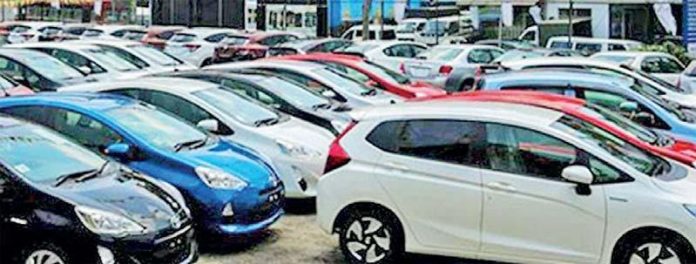Sri Lanka’s vehicle importers have urged the government to introduce a credible survival plan as well as the fullest support of the government to overcome their present difficulties.
They made this call following Finance Minister Basil Rajapaksa’s recent statement that vehicles will not be imported in 2022 even after halting car imports for two years.
Several leading vehicle importers told the Business Times that most of them are undergoing financial difficulties maintaining their business premises and paying off bank loans, rent and the salaries of their employees.
Majority of small and medium scale motor traders are on the verge of bankruptcy as the used car trade is almost out of business due to very low demand, they added.
Issuing a media release, the Vehicle Importers Association of Sri Lanka (VIASL) said that the government announced that the importation will be “reviewed in December 2020” and then in March 2021 they stated that they are considering a “Quota system” for vehicle importation.
In October 2021, various statements were made regarding a scheme in which local taxes could be paid in US dollars and vehicles to be imported without a dollar outflow last year.
This system was rejected by the Finance Ministry and it is simply evident that these are strategies by the officials to control the “price bubble” and to defer the issue in hand, vehicle importers said.
The local vehicle assembly scheme promoted by the government does not appear to have met its objective as it has drastically reduced the government revenue while sending out a considerable amount of dollars, they claimed.
When considering the assembling data, VIASL estimated the tax revenue loss for the government to be around Rs.6 -7 billion in 2020/2021.
For the same period around US$50– 60 million (estimate) has been sent out of the country to import components/spare parts required for assembling.
Former Ceylon Motor Traders Association Chairman Gihan Pilapitiya told the Business Times that it is time that the government offers the all-important automotive trade some breathing space by accommodating a quota system on imports.
Although, the trade understands the current status of affairs of the government on the currency reserve platform it is critical that the government understands the realities of the trade and being accommodating on whatever the areas they can, so that leaving aside making profits, each company can survive in the short term, he said.
Two critical aspects are to look at the currency outflow due to increasing import bill for spare parts for maintaining older vehicles, (leave aside the pollution factor) and the ability of each legitimate company to meet their overheads.
Maybe in the current state of affairs a quota to cover overheads; based on the number of employees would be a good start that can be extended over the years when things improve, he suggested.
